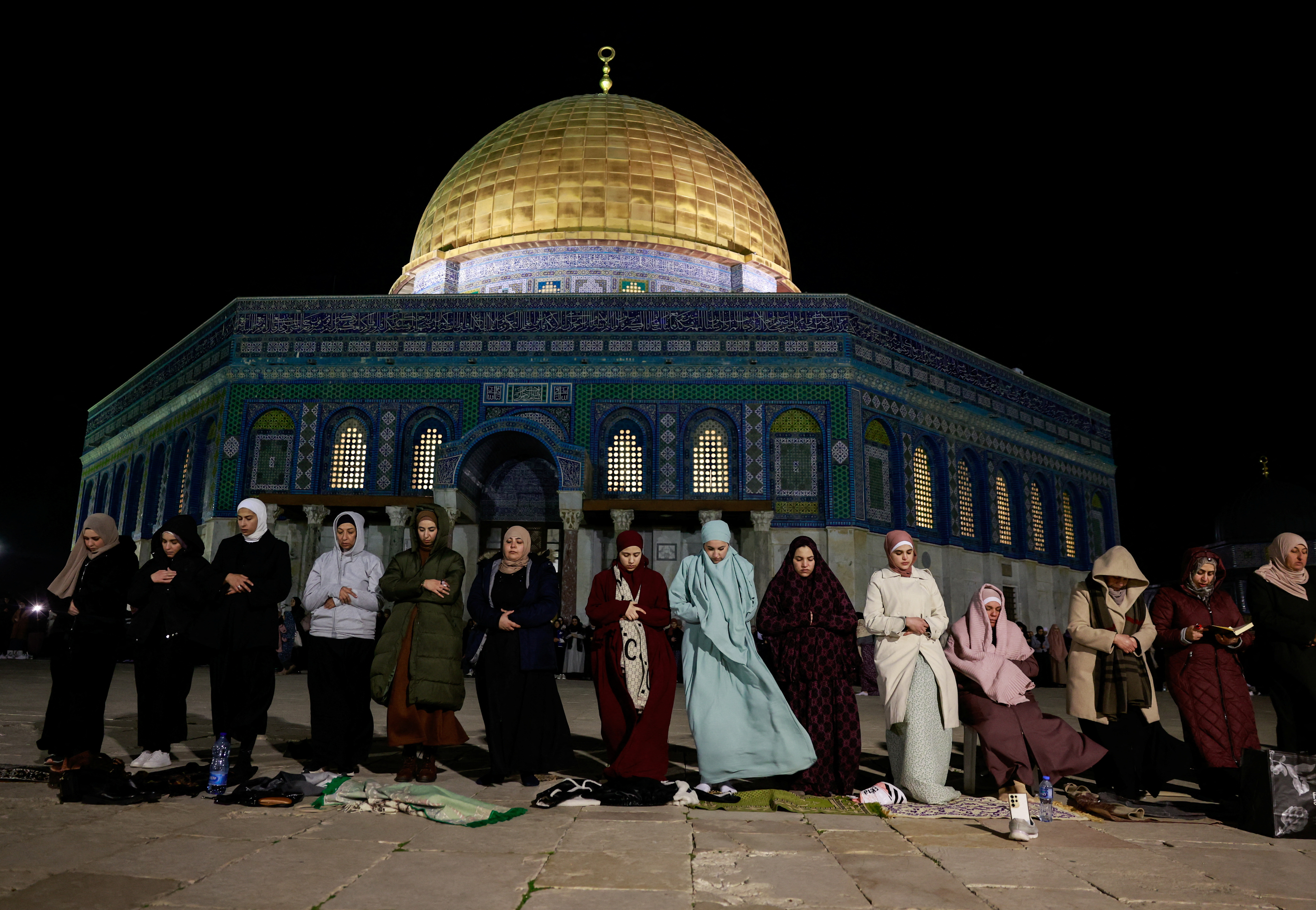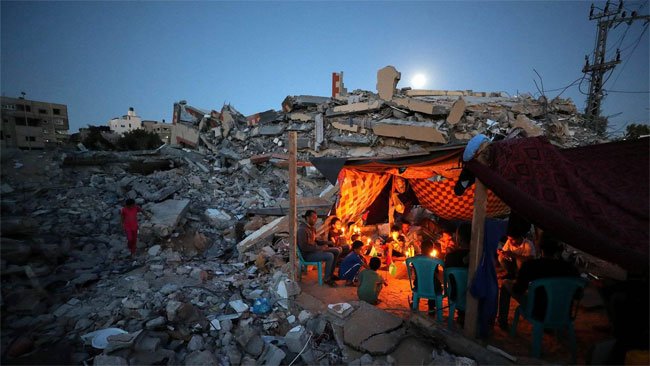With increased Israeli police security conflict, and starvation in Gaza casting a shadow over the usually joyous Muslim holy month, Palestinians prepared for Ramadan in a somber mood as negotiations to reach a truce came to a standstill.
Tens of thousands of worshippers are expected daily at the Al Aqsa mosque compound, one of the holiest sites in Islam, in Jerusalem’s Old City, where dozens of police have been stationed around the tiny streets.
Tensions on Temple Mount: Ongoing Conflict and Diplomatic Efforts
The region, known to Jews as Temple Mount and revered as their holiest site, has long been a hotbed of unrest and served as one of the launchpads for the most recent conflict between Israel and Hamas, the Islamist organization in charge of Gaza. The conflict began in 2021.

That 10-day battle was little compared to the ongoing war, which is already in its sixth month. Approximately 1,200 individuals were killed by Hamas fighters who surged into Israel on October 7, according to Israeli counts.
With the possibility of starvation escalating and the death toll now over 31,000, Israel’s unrelenting onslaught in Gaza has alarmed people worldwide. U.S. President Joe Biden promised on Sunday to keep pushing for humanitarian supplies to Gaza, a truce, and long-term peace for the area in a Ramadan message to Muslims both at home and abroad.
Prime Minister Benjamin Netanyahu clarified that the number of people admitted will be comparable to the previous year following some uncertainty caused by hard-right Security Minister Itamar Ben Gvir’s statement last month that he sought limits on worshipers at Al Aqsa.

The religious organization that is in charge of Al Aqsa, the Jerusalem Waqf, directed General Azzam Al-Khatib, saying, “This is our mosque and we must take care of it.” “We must protect the presence of Muslims at this mosque, who should be able to enter in big numbers peacefully and safely.”
According to lunar observations, Ramadan begins on Monday for Palestinians and on Tuesday for various other Arab and Muslim nations.
Unlike past years, the customary decorations surrounding the Old City have not been put up, and the mood in cities throughout the occupied West Bank, where almost 400 Palestinians have lost their lives in gunfire with security forces or Jewish settlers since the beginning of the Gaza war, was similarly solemn.
Ammar Sider, an Old City community leader, stated, “This year we decided that the Old City of Jerusalem won’t be decorated out of respect for the blood of our children, the elders, and the martyrs.”
Hopes for ceasefire in Gaza
As negotiations in Cairo seem to have stagnated, hopes for a truce that would have allowed Ramadan to pass peacefully and facilitated the release of at least some of the 134 Israeli captives held in Gaza look to have been dashed. Although, as far as he was aware, no dates had been established for more discussions with mediators in Cairo, a Hamas official told Reuters that the organization was ready for further conversations.

During her visit to Qatar on Sunday, International Committee of the Red Cross President Mirjana Spoljaric spoke with Ismael Haniyëh, the head of Hamas’ political office, about the humanitarian situation. As part of the group’s attempt to have direct discussions with all parties, she also met with representatives from Qatar, according to the ICRC.
The tone was similarly depressing in the ruins of Gaza itself, where half of the 2.3 million people are crammed into the southern city of Rafah, many of them living beneath plastic tents and facing acute food shortages.
Maha, a mother of five, explained, “We have been fasting for five months now, so we made no preparations to welcome Ramadan.
“Normally, Maha would have decorated her house and loaded her refrigerator with food for the evening Iftar celebrations, when people break their fast. There’s no food, we have rice and canned food, and most food items are being sold for ridiculously high prices,” she said over a chat app from Rafah, where she and her family are seeking refuge.











